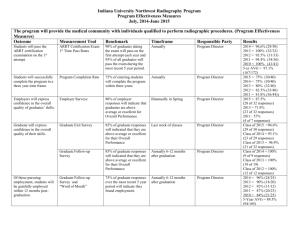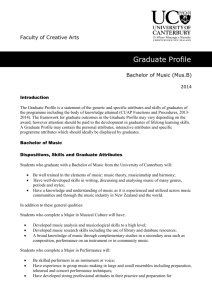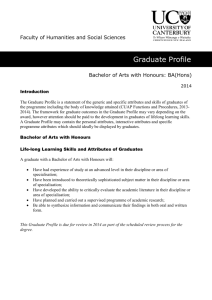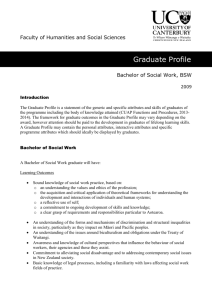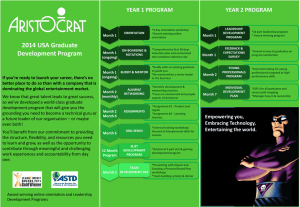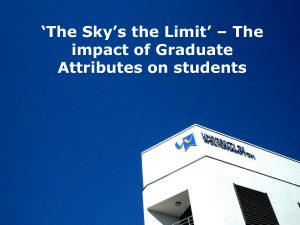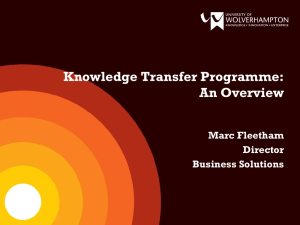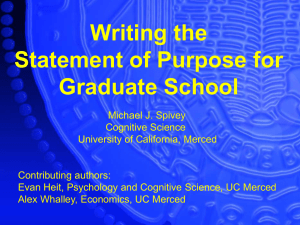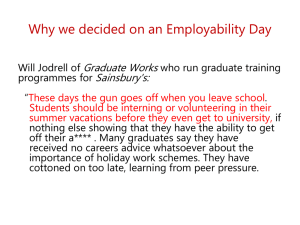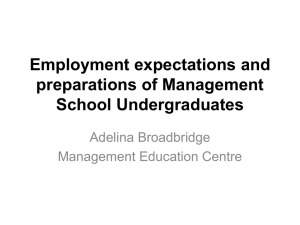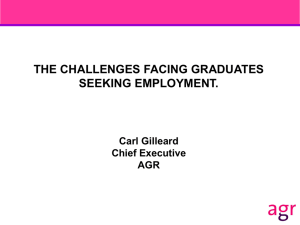National University of Singapore Prof Dr PE Seeram
advertisement
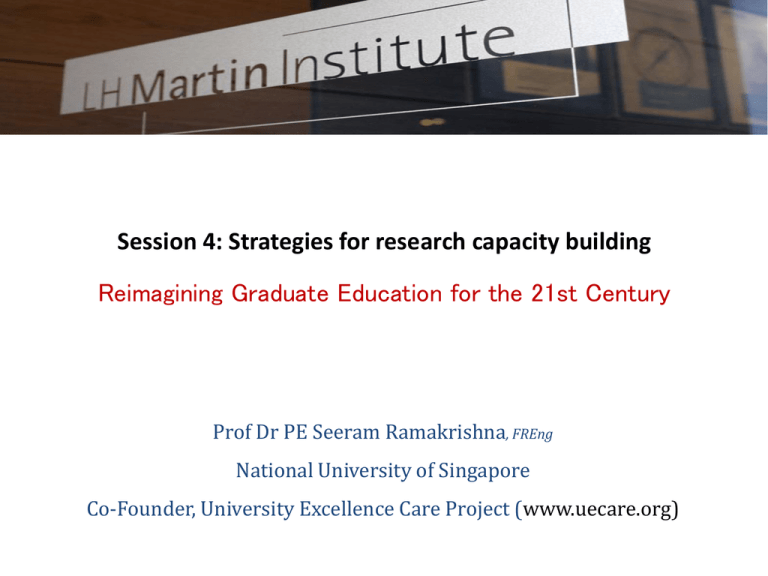
Session 4: Strategies for research capacity building Reimagining Graduate Education for the 21st Century Prof Dr PE Seeram Ramakrishna, FREng National University of Singapore Co-Founder, University Excellence Care Project (www.uecare.org) seeram.rk@gmail.com seeram@nus.edu.sg Vice-President Research Strategy; Dean, Faculty of Engineering; Director, Center for Nanofibers & Nanotechnology; Director of NUS Enterprise; Director of Technology Licensing Office @ National University of Singapore (NUS) Author of book Changing Face of Innovation; Founder, Global Engineering Deans Council (www.gedc.org); Co-Founder of University Excellence Care Project (www.uecare.org). Thomson Reuters identified him among the World’s Most Influential Scientific Minds Highly cited researcher (http://highlycited.com/) PhD, University of Cambridge; The General Management Program, Harvard University Elected Fellow, professional societies & academies of Singapore, UK, India, ASEAN & USA Thomson Reuter’s Web of Science holds some 58 million items 6000 m http://www.nature.com/news/the-top-100-papers-1.16224 What are the numbers? ~ 200 million plus students in ~ 20,000 plus universities around the world ~ 5m to 10m students in the graduate programs (masters and PhD) ~ Hundreds of disciplinary areas and specializations ~ half a million students internationally mobile for higher education Why students enroll into graduate programs? To gain advanced skills and knowledge To move into new areas (compared to the bachelor degrees) To seek opportunities beyond the borders Why graduate education is important? Universities need well qualified academics Industry and businesses need specialists and experts Research, invention and innovation need specialists in addition to the generalists What complicates? Diverse program structures (course requirements, thesis requirements, publications, etc.) Incoming students with different levels of education attainments Variety of quality assurance and standards Work environment for the graduates is different from the yester years Work environment for the graduates is different from the yester years: Developing Graduates and Researchers Public scholarship abilities Via communicating to the lay persons; society relevance; visibility Mentoring skills Via guiding junior students and researchers Team, multicultural, collaborative skills Via multi/interdisciplinary research; international collaborations Articulation skills Via international conferences; interactions with funders Scientific fundamentals & knowledge via course work Scientific skills via usage of advanced scientific tools & methods Ethics to avoid plagiarism; fraud; Safety practices Journal of Engineering Education Transformations, Volume XXVII, No. 4, July-2014, ISSN 2349-2473 Journal papers & book writing skills; Grant writing skills; IPR protection & transfer skills 3 Is & E of Graduate Education Interdisciplinary approach Impact International collaboration Enterprising mindset Graduate education of yester years Mono-disciplinary Depth focused Localized International visiting scholars International visiting scholars who temporarily visit host countries and then return to their home countries are considered one form of short-term brain circulation. Unlike brain drain or brain gain, brain circulation emphasizes the potential benefits for both the sending and receiving countries as a consequence of the continuous and circular moves of scholars. http://www.uecare.org/ue/ http://www.universityworldnews.com/article.php?story=20140924081517506 University Excellence Care Project http://www.uecare.org/ue/ Reporting Institutions Agencies Organizations Individuals UECP IAB “Advising” Feed Back Support Funds UECP “Actin Committees” Exchange Sharing Internationalization http://www.uecare.org/ue/ Promotion Services CAMPUS AS LABORATORY Innovative ways of teaching, learning and doing research are helping universities around the globe to adapt to the modern world 16 OCTOBER 2014 | VOL 514 | NATURE | 289
